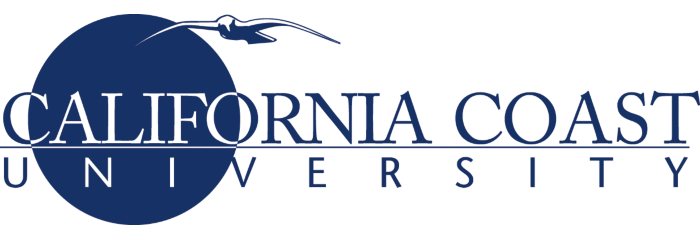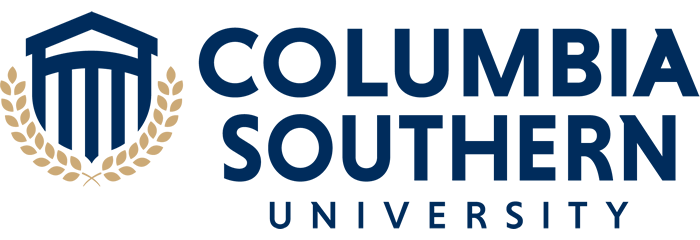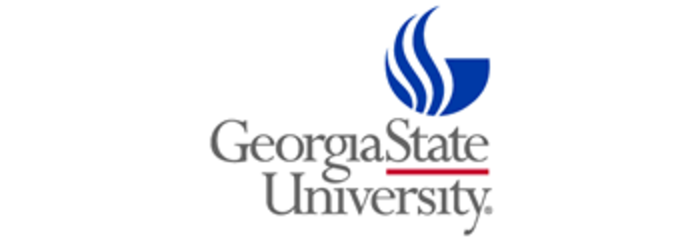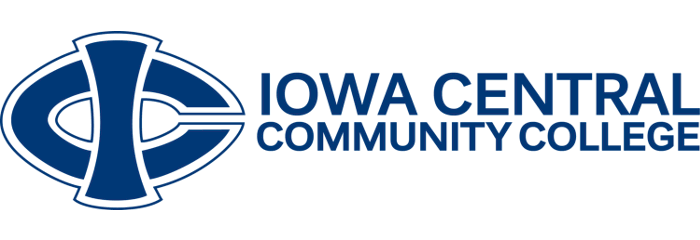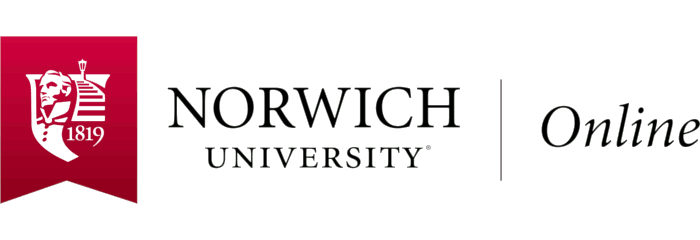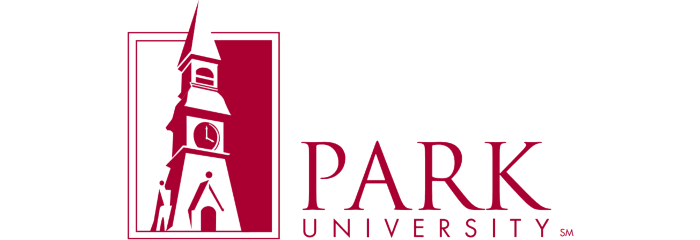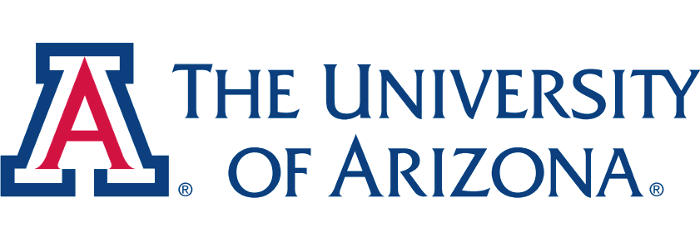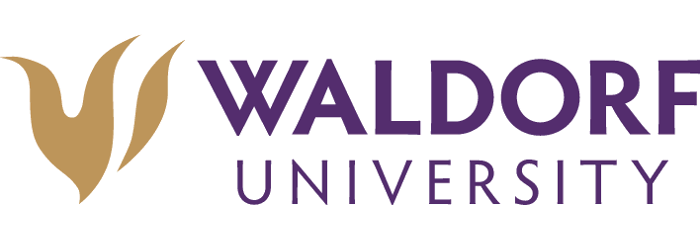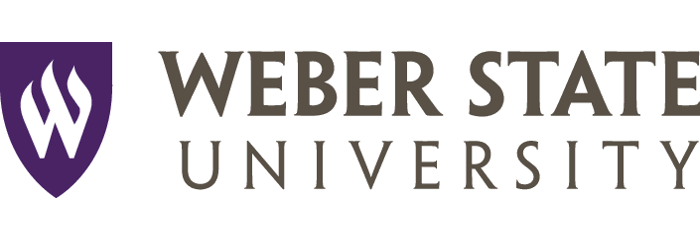List of Accredited Online Colleges & Universities
ON THIS PAGE
Online Colleges Accreditation Choose a College Paying for CollegeAccredited online colleges and universities provide a unique opportunity to continue your education conveniently and affordably while giving you confidence that you'll receive an education that meets high academic standards.
You can choose schools from our Comprehensive List Of Accredited Online Schools covering over 40,367 fully online degrees at the associate, bachelor's, master's, doctoral, and certificate levels. All of these schools are accredited by agencies recognized by the U.S. Department of Education (ED). Our recommendation rate is based on feedback from former students through our partner site and the largest database of independent online college reviews, GradReports. Tuitions on our list range from $3,920 to $58,195 annually, so quality education can be found at every budget. We also provide rankings of the best online colleges and degrees to help you find the schools and programs that offer the best return on investment.
Learn more about how we make money. ">ADVERTISEMENT
Online Programs You May Be Interested In

Arizona State University
Annual Tuition: $19,398 - $29,428
305 Programs (view all)

Southern New Hampshire University Online
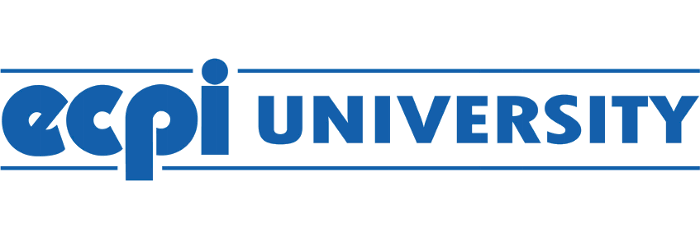
ECPI University Online
Annual Tuition: $16,639
21 Programs (view all)
Comprehensive List Of Accredited Online Schools
| School | Online Enrollment | Annual Tuition | Recommend Rate |
|---|---|---|---|
| School List | |||
| Western Governors University | 136,139 | $6,670 | Western Governors University. "> 71% (737 reviews) |
| Southern New Hampshire University Online | 106,375 | $9,600 | Southern New Hampshire University Online. "> 63% (441 reviews) |
| University of Phoenix | 94,038 | $9,552 | University of Phoenix. "> 60% (1147 reviews) |
| Grand Canyon University | 75,277 | $17,800 | Grand Canyon University. "> 50% (535 reviews) |
| Liberty University | 70,429 | $11,700 | Liberty University. "> 58% (326 reviews) |
| Strayer University | 51,507 | $13,515 | Strayer University. "> 59% (215 reviews) |
| Walden University | 48,420 | Not Provided | Walden University. "> 51% (683 reviews) |
| University of Maryland Global Campus | 46,847 | $12,336 | University of Maryland Global Campus. "> 59% (225 reviews) |
| American Public University System | 45,249 | $7,324 | American Public University System. "> 70% (181 reviews) |
| Arizona State University | 44,253 | $24,413 | Arizona State University. "> 64% (112 reviews) |
| Capella University | 37,859 | $14,540 | Capella University. "> 62% (670 reviews) |
| Purdue University Global | 37,778 | $14,358 | Purdue University Global. "> 72% (470 reviews) |
| The University of Arizona Global Campus | 32,620 | Not Provided | The University of Arizona Global Campus. "> 67% (684 reviews) |
| Chamberlain College of Nursing | 25,295 | $19,638 | Chamberlain College of Nursing. "> 84% (64 reviews) |
| Excelsior University | 25,245 | Not Provided | Excelsior University. "> 63% (188 reviews) |
| DeVry University | 21,321 | $18,197 | DeVry University. "> 60% (218 reviews) |
| Columbia Southern University | 20,034 | $6,600 | Columbia Southern University. "> 78% (189 reviews) |
| Rasmussen University Online | 19,588 | Not Provided | Rasmussen University Online. "> 44% (86 reviews) |
| Post University Online | 19,520 | Not Provided | Post University Online. "> 40% (108 reviews) |
| Johns Hopkins University | 19,138 | $55,350 | Johns Hopkins University. "> 0% (1 review) |
| The University of Texas at Arlington | 18,824 | $28,129 | The University of Texas at Arlington. "> 33% (27 reviews) |
| Ultimate Medical Academy | 18,023 | $15,525 | Ultimate Medical Academy. "> 84% (533 reviews) |
| Full Sail University | 16,164 | $24,513 | Full Sail University. "> 44% (119 reviews) |
| Florida International University | 13,671 | $18,963 | Florida International University. "> 77% (13 reviews) |
| Georgia Institute of Technology | 13,301 | $33,794 | Add Review |
| Saint Leo University Online | 12,962 | $23,750 | Saint Leo University Online. "> 63% (93 reviews) |
| Colorado State University Global | 12,670 | $8,400 | Colorado State University Global. "> 55% (112 reviews) |
| American InterContinental University | 11,437 | Not Provided | American InterContinental University. "> 71% (210 reviews) |
| Lone Star College System | 11,308 | $5,564 | Add Review |
| Independence University | 11,228 | $14,585 | Independence University. "> 56% (124 reviews) |
| Northcentral University | 11,223 | $18,095 | Northcentral University. "> 48% (267 reviews) |
| University of Central Florida | 11,073 | $22,467 | University of Central Florida. "> 88% (8 reviews) |
| Bellevue University | 10,503 | $7,851 | Bellevue University. "> 68% (69 reviews) |
| Thomas Edison State University | 10,130 | $9,856 | Thomas Edison State University. "> 58% (74 reviews) |
| The George Washington University | 9,978 | $56,935 | The George Washington University. "> 60% (5 reviews) |
Online Schools by Degree Level
| #1 | Excelsior University |
| #2 | Weber State University |
| #3 | Southern New Hampshire University Online |
| #4 | Thomas Edison State University |
| #5 | Columbia Southern University |
| #1 | University of Virginia |
| #2 | Northeastern University |
| #3 | Excelsior University |
| #4 | Capella University |
| #5 | SUNY Empire State College |
Highlights of Accredited Online Schools
California Coast University
California Coast University (CCU) hosts an online module with 13 undergraduate degree programs, 14 graduate degree programs, and 16 certificate or diploma programs. The fully accredited, fully online degree and certificate programs have no set meeting times or group projects. Students aren’t required to come to campus or take exams on a specific date. The university offers low tuition rates for both undergraduate and graduate programs, along with interest-free payment plans starting at $100 per month. Students can prepare for a variety of professions at CCU by pursuing degrees in business administration and management, criminal justice, health care administration, education, and general studies, among others. Time to degree varies widely because CCU is self-paced—students have flexibility as long as they complete at least one course every six months. The average recommendation rate for this university is a solid 90% based on the reviews of 63 students. CCU also offers academic credit for work experience or training for professionals hoping to earn an undergraduate degree.
Columbia Southern University
Columbia Southern University (CSU) offers 28 online undergraduate degrees and 12 online graduate degrees. Some programs extend across several degree levels — for example, students can pursue an AS, BS, and MS in criminal justice or a BA, MA, and doctorate in business administration. The recommendation rate for this university is 79% among the 174 students who’ve reviewed their experiences. Columbia Southern University offers three schedule tracks to give students maximum flexibility in their education programs. The LifePace Learning option allows students to complete a course at their own pace between four and 10 weeks. Term enrollment allows a degree of self-paced study within a specific nine-week period. CSU also offers Veterans Flexible Enrollment, which is similar to term enrollment but only available to students using Veterans Administration education benefits. Tuition is $225 per credit hour for undergraduates and $300 per credit hour for graduate courses, including textbooks. CSU also partners with over 2,500 organizations to offer a 10% tuition discount for working professionals.
Georgia State University
Georgia State University (GSU) features distance-learning programs at the associate, bachelor’s, master’s, doctoral, and certificate levels. The majority of online offerings are at the associate and master’s degree levels, with 21 associate and 14 master’s program choices. In the online format, Georgia State University also offers seven certificates that allow individuals to earn professional credentials, one bachelor’s degree, and one doctoral program. Programs range from fully online to hybrid, with some programs offering students total flexibility in choosing to come to campus or to stay remote if they prefer. GSU offers many education options for students that want to become teachers or for educators who want to advance in their career, including associate degrees in secondary and special education and master’s degrees in educational research, science education, and teaching English as a second language. Online master’s degrees typically offer the most flexibility for working professionals with busy schedules because they’re designed to be completed in six seven-week terms. GSU ranked #1 in OnlineU’s 2020 Best Military-Friendly Online Colleges list and earned a high spot in the 2019 Best Online Colleges for Low-Income Students ratings. Students can apply for federal financial aid and visit the school’s Scholarship Resource Center to pursue additional scholarship and loan opportunities.
Iowa Central Community College
Iowa Central Community College (ICCC) offers nine affordable online associate-level programs in fields including criminal justice, healthcare administration, and accounting. Online courses start on six dates throughout the year, with two 8-week classes comprising one semester. Each program typically takes about two years to complete if full-time students take two classes at a time. There is a full spectrum of support available to ensure student success. ICCC provides tutoring services through a program called Smarthinking, and the school’s Online Enrollment Representatives provide academic advising for the duration of a student’s chosen program. In addition, students can consult Iowa Central Career Services for internship and job postings, networking opportunities, and career coaching. Counselors can also advise students on continuing their education with higher degrees. Tuition is $315 per credit hour plus $30 per credit hour for e-book rental, and students can rent computers and hardware if needed. Because ICCC is accredited, students can apply for federal financial aid along with some state grants for Iowa residents.
Norwich University
Norwich University (NU) has nine online bachelor’s degrees and 15 online master’s degrees, each with several specialized concentrations. The university has a 71% recommendation rate among 17 student reviews. NU is the oldest private military college in the United States, and its dedication to service members helped it secure a high position on OnlineU’s 2020 Best Military-Friendly Online Colleges list. Indeed, two of its bachelor’s degree programs are available only to select members of the military and intelligence communities: the BS in National Security Studies and the BS in Strategic Studies and Defense Analysis. Other options include undergraduate and graduate degrees in criminal justice, business administration, and computer science and information systems. Norwich designs programs so that students take only one class at a time, and most students complete their degrees in 18-24 months. Tuition rates vary by program, and active-duty military members receive discounts on undergraduate tuition rates. NU is dedicated to supporting and guiding students through the online experience, providing student service advisers, distance learning librarians, a technical support team, and a Graduate Writing Center for extra help.
Park University
Park University (Park) offers 54 undergraduate degrees and 50 master’s degrees online. Programs include a master’s in business administration, two bachelor’s degrees in criminal justice administration, and a certificate in public accounting. The school has a recommendation rate of 79%, pulled from 14 student reviews. All courses are offered in 8-week terms, with five start dates throughout the year for added flexibility. Most full-time students take two courses at a time and all can access course materials when it’s convenient for them, but learning is not self-paced — students need to meet assignment deadlines. Annual tuition is $11,572 for online undergraduate students and $5,917 for online graduate students. Park provides a host of support services for online learners, including remote tutoring, access to research databases, mentoring through the StepUP program, and job-search help from the Career Development Center.
Southern New Hampshire University Online
Southern New Hampshire University (SNHU) Online features a large selection of online programs, with eight associate degrees, 99 bachelor's degrees and 86 master's degrees for prospective students to choose from. Students can pursue degrees in fields ranging from business to criminal justice to education and liberal arts. SNHU Online has a 64% recommendation rate based on 371 student reviews, and a generous transfer policy that allows students to apply up to 90 credits toward an undergraduate program. OnlineU has this university at #3 on two of our lists: The 100 Most Popular Accredited Online Schools & Colleges and the 2021 Best Online Associate Degrees list (based on a high return-on-investment rating). Academic term start dates are spread throughout the calendar year and all online courses are accessible 24/7 at the student's own pace. SNHU Online also offers specialized online student resources, including an online library, bookstore, tutoring services, and tech support. Tuition is $9,600 per year for undergraduate programs.
University of Arizona
The University of Arizona (UA) offers many accredited online degree programs for prospective students to choose from. There are options at every degree level: 53 bachelor’s and 99 master’s degrees, six doctorates, and 43 certificates in fields as varied as business administration, cyber operations, engineering management, public health, and special education. Arizona has ranked highly in many of OnlineU’s school rankings lists for low tuition and high mid-career salary among graduates, notably in programs like geographic information systems, environmental science, and nursing, among others. It also ranked second in our list of military-friendly online schools for 2020. The university makes online education flexible and affordable, with classes starting every seven-and-a-half weeks and a pay-per-credit tuition model. The rates are identical for all students in the same program, with no in-state and out-of-state distinctions. In addition to federal financial aid, students transferring from community colleges in Arizona can apply for Bridge Scholarships to reduce costs. To help students succeed, the University of Arizona has established a network of support that includes academic advisers, tutors, coaches, and alumni mentors.
University of California - Berkeley
The University of California - Berkeley (UC Berkeley) has developed highly rated online learning programs to supplement its traditional offerings. The UC Berkeley Extension hosts 61 distance-learning certificates for students to bolster skills in fields such as accounting, web design, professional writing, and paralegal studies. Graduate students can pursue online master’s degrees in information and cybersecurity, information and data science, and public health, with specializations including epidemiology and biostatistics. OnlineU rated these programs highly thanks to their excellent return on investment scores. Further, Berkeley earned the top spot in our 2020 Best Online Master’s Public Health Degrees list. Students of this university engage in synchronous and asynchronous learning and benefit from contact with top faculty researchers and alumni networks. The Master of Information and Data Science program offers three tracks for added flexibility so that students can earn their degree between 12 and 32 months. UC Berkeley also provides the iGrad personal finance tool to help graduate students who pursue financial aid or work-study programs manage their education costs.
University of Virginia
Online learning at the University of Virginia (UVA) provides a great return on investment for many students, which is why OnlineU ranks many of its programs highly. The university’s online Bachelor of Interdisciplinary Studies degree program features 12 available concentrations and a high tuition-to-salary ratio for alumni, earning University of Virginia the top spot in our 2021 Best Online Bachelor’s Degrees list. UVA is also well represented in OnlineU’s graduate degree rankings, with highly rated master’s degrees in data science and chemical, electrical, and aerospace engineering. The School of Education and Human Development offers the most graduate degree programs, including a doctorate in curriculum and instruction with five possible specializations, and a number of master’s degrees and certificates. Working educators receive special tuition rates on these programs, and all students can pursue financial aid opportunities to help with affordability and academic support through tutoring, Transfer Student Resources, and Career Services. Most of UVA’s online courses are asynchronous, with lecture and class sessions recorded for students to review at their convenience. Course schedules follow the on-campus semester timeline, and online students must complete the same programmatic requirements as in-person students.
Waldorf University
Online students at Waldorf University (WU) can choose from 15 associate degrees, 86 bachelor's programs, and 17 master's degrees in criminal justice, emergency management, public relations, and more. The healthcare management program is comprehensive, spanning all three degree levels and featuring four specializations for master’s students. Waldorf also offers online certificates for extra credentials in fields like occupational safety, homeland security, and human resources. Courses start on six different term dates during the year and last eight weeks. Waldorf has a 100% recommendation rate, pulled from 15 student reviews. The school hosts a program called Start Point that allows students ages 15 or older to enroll in online college courses while still in high school. Tuition for undergraduate students is $290 per college credit hour and all textbooks are available for free through the Waldorf Book Grant and Loan-a-Book programs. Because Waldorf is regionally accredited, its students can apply for federal student aid. The school also offers a number of scholarships specifically for online students.
Weber State University
Weber State University (WSU) offers an online learning experience for a number of its accredited degree programs. Online students can pursue any of four associate degrees, 16 bachelor’s degrees, and four master’s degrees, along with two certificates. WSU is ranked #1 in OnlineU’s 2020 Best Online Bachelor’s Computer Science Degrees due to the program’s low tuition rate and high mid-career salary among graduates. Tech-minded students can also pursue an Associate of Applied Science in Computer Science, one of the university’s highly ranked online associate degrees. The Dumke College of Health Professions is also well-represented in WSU’s distance education options, featuring four-year bachelor’s degrees in health administrative services and medical laboratory science, along with master’s degrees in radiologic sciences and respiratory therapy. Ambitious undergraduates can design an interdisciplinary program leading to a Bachelor of Integrated Studies degree, selecting three of the seven areas of emphasis that offer fully online classes. Some online programs follow the traditional semester schedule of the Weber State campus, but others are self-paced modules that students can start anytime for greater flexibility with coursework. Students at this university can seek financial aid regardless of whether they complete their degree through an online or in-person program, but the application process and aid available may differ depending on the program.
Western Governors University
Western Governors University (WGU) is a nonprofit school with regional accreditation, as well as a 74% recommendation rate based on 667 student reviews. WGU offers 23 bachelor's degrees, 31 master’s degrees, and three certificates and diplomas in four broad fields: business, education, information technology, and health and nursing. The university’s competency-based learning policy allows students to accelerate their program if they already have the necessary knowledge or experience, regardless of how it was gained. This leads to students finishing their programs in three years or less, on average. Students take assessments in the form of assignments, projects, or tests to prove their competency and move forward in the program. Online learning is asynchronous at WGU, so students can complete tasks at any time of the day (though assignments still have set deadlines). Tuition for online undergraduate students is $6,670 per year. In addition, a high return-on-investment score (based on graduate salary and debt data) grants WGU a ranking in OnlineU’s 2021 Best Online Bachelor’s Degrees.
School Data Methodology
Our goal in presenting this school data is to create a standardized and trustworthy method to assess institutions based on valuable statistics.
All schools included above were required to offer at least 10 online degrees. Degree coverage was determined based on data from The National Center for Education Statistics (NCES) and from schools' official websites, collected in 2020. Annual tuition data was collected from the NCES or a school representative. Recommend rates reflect internal data, which is calculated based on student reviews submitted to our partner site, GradReports.com.
The NCES is the primary governmental entity for gathering and presenting data related to education. The NCES data is updated annually as soon as it becomes available. The NCES does not release data into downloadable formats until it has been approved, so the most currently available data will not be for the most recent academic year.
Why Choose an Online College?
You may choose an online college because of its flexibility, diversity in curricula, and affordability. Online education continues to expand, with 75% of all undergrads taking at least one course online in 2020. The Brookings Institution also finds that the global pandemic has profoundly impacted online education quality, generating increased technical proficiency and learning style adaptability.
Online colleges and degrees are also respected by employers, making them even more appealing.
You can choose programs in popular fields, including business, psychology, biology, history, and nursing. While some majors require an onsite supervised internship or practicum, a program advisor can help you find opportunities near your home. You may also choose from traditional programs or accelerated degrees which may cut the time you spend in college by almost half, depending on the degree level and your prior experience.
Online Colleges vs In-Person Programs
Online colleges and in-person programs are relatively comparable, but some key differences exist. For example, there may be greater accessibility to online programs if your course of study is unavailable locally or if you have challenges navigating a college campus due to a disability. These factors can also lend to the convenience of attending school online, especially if you work full-time and balance other responsibilities.
Accredited online colleges and in-person programs typically offer the same academic rigor and are often taught by the same instructors. However, online colleges may have a unique advantage over in-person programs because they can host instructors and guest speakers worldwide to share their expertise and enhance your learning experience.
For more information about studying online, explore our Guide to Starting Your Online Education, where we cover the online learning format.
Which Colleges Are Completely Online?
Aspen University, Shiloh University, and California Coast University are completely online and are the top three most affordable schools on our list. The top three most popular schools include Western Governors University and Southern New Hampshire University which are both 100% online, and the University of Phoenix, which is primarily online but may require some on-campus work. Our list offers a mix of accredited nonprofit and for-profit online colleges and universities, including many military-friendly options.
How Many Online Colleges and Universities Are There?
According to the National Center for Education Statistics (NCES), there were 3,928 colleges and universities offering fully or primarily online programs in the U.S. as of 2020. These colleges and universities include public and private, and nonprofit and for-profit institutions.
Online College Accreditation and Legitimacy
Institutional accreditation ensures a school meets high academic standards by passing a voluntary peer review conducted by a DE-recognized agency and is the first step to legitimizing a school. It also means that you are eligible to use your federal financial aid to help pay tuition. Additionally, degree programs may be programmatically accredited by professional organizations ensuring student outcomes meet industry standards.
It's important to note that a few online schools known as "diploma mills" are not legitimate. One way these schools try to disguise themselves is by proclaiming accreditation that's actually from a fictitious agency. Other telltale signs of a diploma mill include a ".com" URL, minimal enrollment requirements or none at all, tuition paid by the degree and not the term or course, and any promises that seem too good to be true — and probably are.
Finding the Right Online College
Finding the right online college is crucial to your success and career potential. However, once you pick a college that's legitimate and accredited, you should consider the following questions before applying:
| Question | Where To Find the Answers |
|---|---|
| Does the school's program include a concentration, area of emphasis, or electives to help you achieve your career goals? | You can usually find this information on OnlineU's program pages or the school website's program page — our degree guides are also a great place to start. |
| Do you prefer asynchronous courses to let you complete assignments on your own time each week, or do you like synchronous classes requiring you to log in at specific days and times? | Course delivery information can usually be found on OnlineU's program pages or the school website's program page. |
| Does the school provide financial aid? What percentage of the student body receives assistance, and what is the average award? | You can find a school's financial aid information at College Navigator. |
| What student services are available to you as an online student and future alumni? | A list of student services can usually be found on the student resources section of a school's website. |
| What are the school's graduation and retention rates? | You can check these numbers on College Scorecard. |
| What is the ROI for graduates? How does the program's cost compare to your potential for increased earnings over the life of your career? | OnlineU's rankings provide ROI and salary information. |
Applying to Online College
Applying to an online college is generally the same as applying to attend on campus. Schools typically require you to submit the following:
- An application and fee of approximately $50
- Academic transcripts
- Entrance exam scores
- An essay
- Reference letters
- A resume
- A portfolio (fine arts students)
Financial Aid for Online Students
Financial aid is available for online students. You can apply for federal aid by completing a Free Application for Federal Student Aid (FAFSA) to see if you qualify for grants, scholarships, work-study, or low-interest federal student loans with flexible repayment options.
You may also qualify for private scholarships, which are like getting free money that doesn't have to be repaid. Your school may also award scholarships funded by benefactors and former alumni. Your school's financial aid office can help you find scholarships that you may be eligible for.
Other sources of financial aid may include GI Bill benefits, employer-paid tuition reimbursement programs, and private loans. However, if you apply for private loans, do so with caution, as interest rates can be high and repayment options limited.
FAQs About Online Colleges
Is Online College Cheaper?
Online college can be cheaper than on-campus because schools may waive campus fees and charge flat rate tuition regardless of residency. In addition, books and learning materials may be available online for a low cost or even free. You also won't incur the expense of commuting to and parking on campus.
Are Online Degrees Legitimate?
Online degrees are legitimate if an ED-approved agency accredits them. However, you must be careful of "diploma mills" that are not legitimate because they aren't actually accredited and may lead students on with false claims.
How Does Online College Work?
Online college works by delivering coursework and instruction via a secure learning management system (LMS), such as Canvas or Blackboard. Classes are usually asynchronous allowing you scheduling flexibility. You log on through your computer or mobile device when you have time during the week, watch pre-recorded lectures, participate in class posts and discussions, and submit your assignments through the LMS.
Does the Location of My Online School Matter?
Generally speaking, the location of your online school shouldn't matter as long as you receive the education you desire. However, it can prove challenging if you want to take on-campus classes occasionally or need to complete lab assignments or experiential learning. You may also be required to pay costly non-resident tuition rates.
Related Articles
Accredited Non-Profit Online Colleges & Schools
View all of the non-profit colleges with online programs. Non-profit schools may offer lower tuition because their focus is on education, rather than profit.
By OnlineU Staff Writers | 12/7/2022
